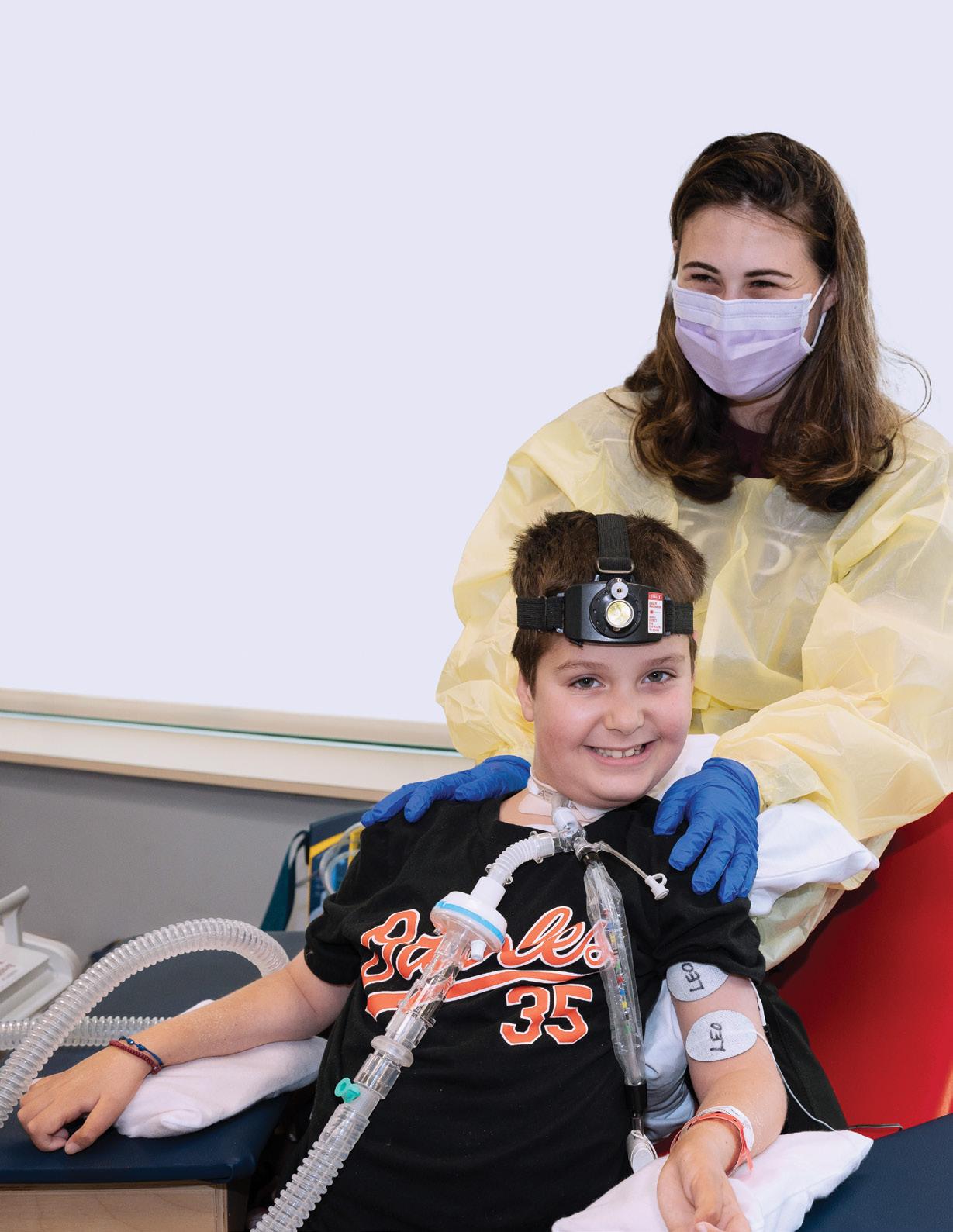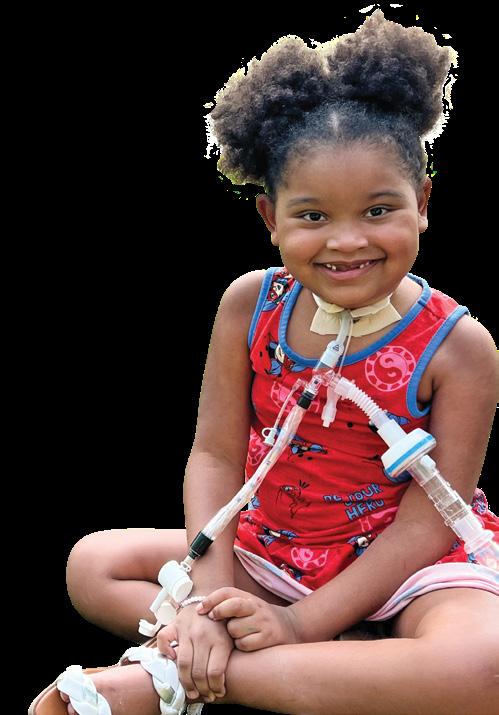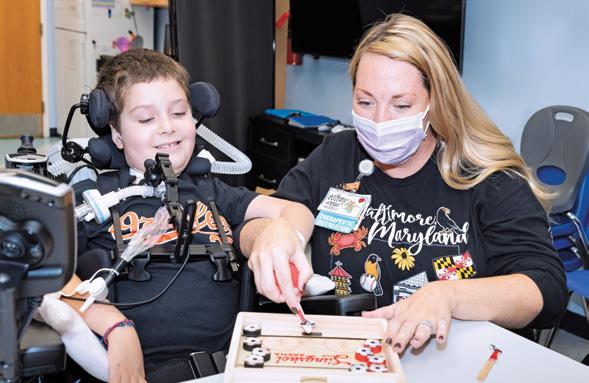
2 minute read
Treating the Whole Child
Kennedy Krieger’s hospital helps kids like Leo and Serenity reclaim their lives after AFM. Here’s how.
Four years ago, Leo moved with his family to Baltimore from Greece to receive treatment at Kennedy Krieger Institute for acute flaccid myelitis, also known as AFM. At the time, he’d been in a hospital for a year in Athens, his body was almost fully paralyzed, and he needed a ventilator to breathe.
The plan was for Leo to stay at Kennedy Krieger’s inpatient hospital for four or five months—until the spring of 2020. But when the COVID-19 pandemic restricted international travel, his time at Kennedy Krieger lengthened.
That’s when the Institute’s inpatient hospital became Leo’s “second home,” say his parents, Kostas and Eleftheria. For nearly a year, Leo received daily physical, occupational, respiratory and speech therapies from his interdisciplinary team. He improved so much that his parents decided to stay in Baltimore. In September of 2020, he left Kennedy Krieger’s hospital for his family’s new home just a few miles away. Since then, he has returned to Kennedy Krieger a few weeks each year for a therapy boost.
“His favorite therapy is aquatic therapy,” Eleftheria says. “In the pool, he can move his arms and legs in the water. He really enjoys it.”
AFM Treatment
AFM was first identified in 2014, and researchers believe the paralysis associated with it is most likely caused by a virus. Since then, cases have peaked every other year—until the pandemic. “In 2020, with everyone staying home, there were fewer than 10 cases of AFM recorded in the U.S.,” compared to close to 200 in previous peak years, explains Dr. Michelle Melicosta, the Institute’s associate chief medical officer.
“Kennedy Krieger has provided care for about onethird of all kids diagnosed with AFM in the country, through either inpatient or outpatient care,” says Dr. Melicosta, who was Leo’s initial attending physician at the Institute. “The No. 1 treatment is activity-based restorative therapy.” Also known as ABRT, it includes intensive therapies—up to five hours a day—to get as many nerves and muscles working again as possible, adds Dr. Nancy Yeh, medical director of the Institute’s inpatient rehabilitation hospital and Leo’s most recent attending physician. Thanks to ABRT, Leo is able to move his arms and hands more, and he has increased his independence.
Another important piece of rehabilitation is therapeutic recreation—play, but with purpose. In Kennedy Krieger’s Child Life and Therapeutic Recreation Department, patients play games, do crafts and enjoy adapted leisure activities. For Leo, that includes playing video games with adaptive modifications and using special card holders for card games, explains therapeutic recreation specialist Brittany Welsch.
“AFM can be scary because of the paralysis,” she explains. “Giving kids a chance to play and have fun helps reduce the anxiety AFM can cause.”

Thanks to all of his therapies at Kennedy Krieger, Leo is flourishing. “He’s very smart and social,” says Institute educational specialist Julie Gardner, who worked with his school to ensure his medical needs would be met in the classroom.

A Life-Changing Experience
Perhaps most importantly, Kostas says, is that Leo has gotten back his self-confidence. “He’s friends with everyone at Kennedy Krieger’s hospital, and he feels at home there,” he says. “The environment at Kennedy Krieger has Leo feeling good about himself.”
Serenity, 5, has had a similar transformation. She traveled to Baltimore from Texas this past summer for nerve transfer surgery at The Johns Hopkins Hospital, during which surgeons rerouted a healthy nerve under one of her ribs to connect with her diaphragm, which was partially paralyzed by AFM, explains pediatric neurologist Dr. Matthew Elrick. In the month leading up to surgery, Serenity did daily physical and occupational therapies at Kennedy Krieger and enjoyed time in the Institute’s Child Life and Therapeutic Recreation Department playroom.
“She’d had no interaction with other kids since developing AFM, but as soon as we were at Kennedy Krieger, she met a friend who also has AFM, and her whole attitude changed,” says her mom, Deanna. “Everything was so beneficial to her. She just thrived at Kennedy Krieger.” – LT
To learn more about AFM treatment at the Institute, use the QR code or visit: KennedyKrieger.org/AFM









